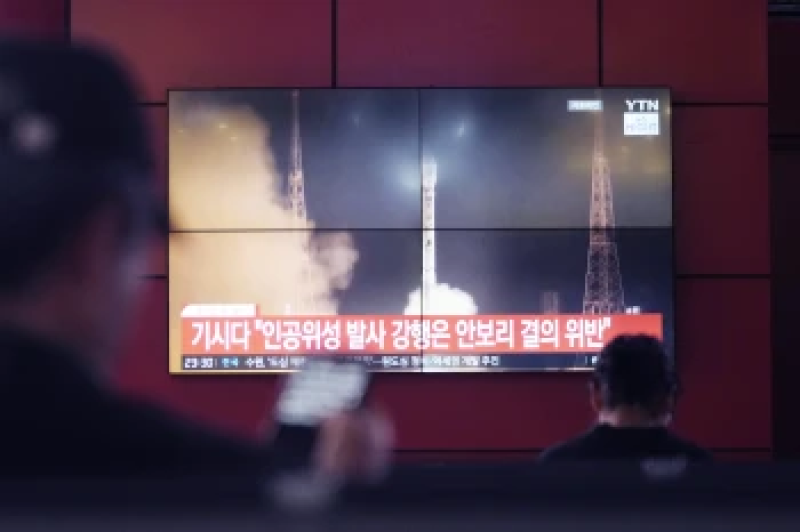- Islami Bank organizes orientation for 1000 Trainee Assistant officers |
- 2025: People’s Resistance Against Hydro Projects in Himalaya |
- Fully ready to hold free, fair, peaceful elections: Prof Yunus |
- Khaleda Zia’s Mausoleum Opens to Public at Zia Udyan |
- Bangladesh cuts fuel prices by Tk 2 a litre at start of 2026 |
N Korea’s attempt to put another spy sat into orbit has failed

A TV screen shows a file image of North Korean rocket launch during a news program at a bus terminal in Seoul, South Korea, Monday, May 27, 2024. AP Photo.
SEOUL, South Korea, May 27 (AP/UNB)— A North Korean rocket carrying its second spy satellite exploded midair on Monday, state media reported, after its neighbors strongly rebuked its planned launch.
The North's official Korean Central News Agency said it launched a spy satellite aboard a new rocket at its main northwestern space center. But KCNA said the rocket blew up during a first-stage flight soon after liftoff due to a suspected engine problem.
Earlier Monday, North Korea had notified Japan’s coast guard about its plans to launch “a satellite rocket,” with a warning to exercise caution in the waters between the Korean Peninsula and China and east of the main Philippine island of Luzon during a launch window from Monday through June 3.
South Korea’s Joint Chiefs of Staff later said it detected a launch trajectory believed to be of a spy satellite fired from the North’s main space center at 10:44 p.m. on Monday. Four minutes later, many fragments were spotted in the waters, it said.
Japanese Prime Minister’s Office earlier issued a missile alert for the island of Okinawa following North Korea’s launch. The alert was lifted soon after.
Japan’s NHK public television earlier reported that an image captured by a camera in northeastern China showed an orange light in the sky and then an apparent explosion a moment later.
North Korea sent its first military reconnaissance satellite into orbit in November last year as part of efforts to build a space-based surveillance network to cope with what it calls increasing U.S.-led military threats. North Korean leader Kim Jong Un later told a ruling party meeting that the country would launch three additional military spy satellites in 2024.
The November launch followed two failed liftoffs.
In the first attempt, the North Korean rocket carrying the satellite crashed into the ocean soon after liftoff. North Korean authorities said the rocket lost thrust after the separation of its first and second stages. After the second attempt, North Korea said there was an error in the emergency blasting system during the third-stage flight.
The U.N. bans North Korea from conducting any satellite launches, viewing them as covers for testing long-range missile technology. North Korea has steadfastly maintained it has the right to launch satellites and test missiles. Kim has said spy satellites will allow his military to better monitor U.S. and South Korean military activities and enhance the threat posed by its nuclear-capable missiles.
North Korea provides Japan with its launch information because Japan’s coast guard coordinates and distributes maritime safety information in East Asia.
Monday's launch came hours after the leaders of South Korea, China and Japan met in Seoul in their first trilateral meeting in more than four years. It’s highly unusual for North Korea to take provocative military action when China, its major ally and economic pipeline, is engaging in high-level diplomacy in the region.

